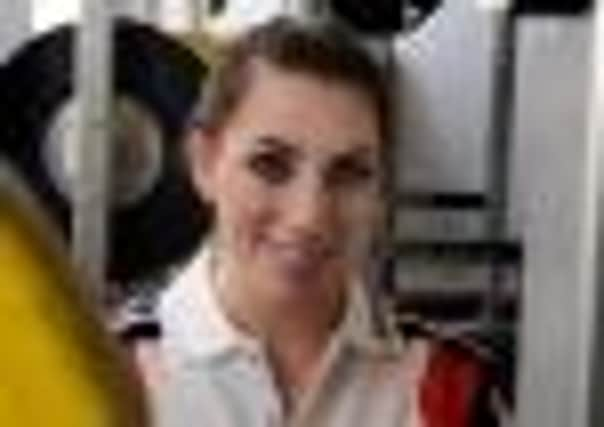Lifters worth their weight in gold


Weightlifters are generally depicted as sportsmen with arms like rugby balls and necks sawn from oak.
In theory that is how you should be built when lifting 175kg is classed as ‘fun’. But the practice is not as straightforward, particularly at Leeds Metropolitan University, home of the Great Britain weightlifting performance centre.
Advertisement
Hide AdAdvertisement
Hide AdFor there, among the suitably strapping men who hope to lift for gold at London 2012 is a teenage girl who stands 4ft 8.5ins.
That is correct, four feet eight-and-a-half inches, as the old football vidiprinter would tell us.
Her name is Hannah Powell. She comes from Birmingham but lives in Leeds so that the high performance centre is right across the street from her house.
“The girls in my weight class are all tiny as well so I’ve got a chance at London 2012,” says Powell in a statement that bucks conventional theories about weightlifters. “I was really weak when I started powerlifting at the age of 11. I only weighed 27kg (five-and- a-half stone).
Advertisement
Hide AdAdvertisement
Hide Ad“My body wasn’t naturally built for weightlifting, more for gymnastics, but I was determined.
“I’m 44kg now, so I’m not a lot heavier, but I have to be 48kg if I want to be competitive in the lowest weight class at the Olympics.”
Even without qualifying, the 18-year-old is still lifting nearly one-and-a-half times her body weight, which just goes to prove, weightlifting is about technique, rather than size or strength.
She says: “My best snatch (one movement, wide grip) is 60kg while my best clean and jerk (floor to chest, chest to head) is 80kg. To qualify, I would have to put another 20kg on both, so it’s a lot, but with hard work it’s not unrealistic.”
Advertisement
Hide AdAdvertisement
Hide AdFour years ago, there was no such thing as a weightlifting high performance centre.
“This is the best weight training facility in the country,” says head coach Fiona Lothian. “The benefit of being in the same environment, training day-in, day-out, is vital. Before this we had no central training centre, no funding programme, no head coach. Before Beijing, the athletes were on their own. Funding didn’t come on line until 2007.
“We’re trying to get a really good team together for London but we’re also looking at Glasgow (2014 Commonwealth Games) and Rio (2016).”
Seven weightlifters and one disabled powerlifter use the facility. Some of these West Yorkshire-based athletes have to work to supplement their income; like Natasha Perdue at Leeds City Council, or studying classics at Leeds University like Jack Oliver.
Advertisement
Hide AdAdvertisement
Hide AdThree men and two women will be sent to London 2012 if they manage to qualify, the last opportunity to do so coming in the British Championships on May 26.
The Leeds base includes disabled powerlifter Ali Jawad, who will be competing at the Paralympics.
The 22-year-old is an Olympic veteran. As if being born without legs was not hard enough, he contracted an illness on the eve of the Beijing final that was diagnosed eight months later to be inflamatory bowel disease Crohn’s.
He still finished ninth in the final and can bench press 175kg, the same amount as the able-bodied lifters can clean and jerk, illustrating how in weightlifting, size does not matter.